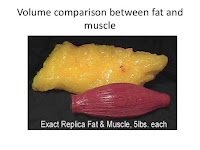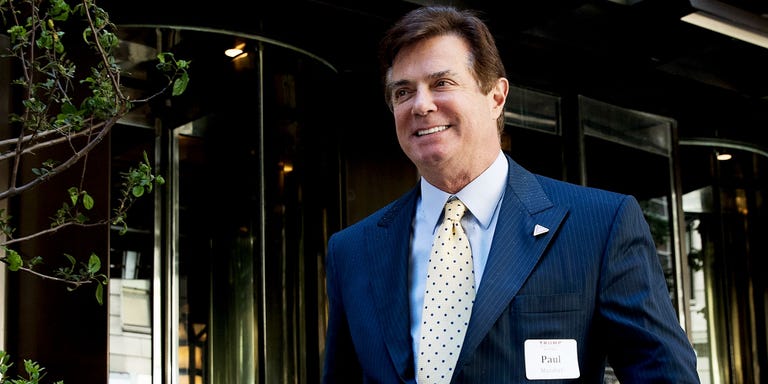Resilience
There’s No Resilience Without Good Health
By Karen Lynn Allen, originally pub. by Musings October 30, 2017

How do you envision yourself at age eighty? Do you want to be active, mobile, and of sound mind and body? Or do you think you’ll be lucky just to be alive?
Good health is not luck. Yes, luck plays a role, as do genetics and the presence or absence of toxic pollution. But the vast majority of Americans have the health that we ourselves create. What kills us, immobilizes us, and makes us dependent on medication is largely within our control.
Indeed, the Center for Disease Control estimates that 80% of heart disease, 80% of strokes, 80% of type II diabetes, and 40% of all cancers are preventable through lifestyle changes. Researchers at UCSF estimate over half of Alzheimer’s cases are likely preventable. This is good news! It means we have a good chance of steering clear of them. Even better, it is completely possible to reverse a host of the most common debilitating and/or fatal diseases with just a change of personal habits. Without drugs, medical procedures or much money, you can lessen/eliminate chronic pain, reverse diabetes and heart disease, avoid dementia, steer clear of most cancers, improve your digestion, beat depression, and generally increase your happiness and life satisfaction.
I don’t know if you noticed during the plethora of natural disasters this last summer, but people with poor health and/or poor mobility tend not to fare well when fires/floods/hurricanes strike. This doesn’t mean we shouldn’t have compassion and evacuate people with poor health/mobility before Mother Nature slaps us around. But it cannot escape the attentive that being dependent on electrically-powered medical equipment or drugs that come via a lengthy, fragile supply chain make one extremely vulnerable should the power go out or the drugs not be delivered. Plus, not being mobile may mean you simply can’t escape quickly enough from fires or floods. (The majority of the victims of northern California’s recent fires were senior citizens.) If you anticipate there may be food or energy insecurity in our future, you can bet that medical services will hiccup long before that. Solar panels, orchards, and canned food are all well and good, but good health is absolutely the best investment you can make to prepare for whatever lies ahead. Plus it will make you feel great in the meantime. I mean really great. And if disaster strikes, it will put you in the position of being able to help friends, family and community members instead of being the one who needs help.

My health is good, you may be thinking. Or at least good enough. Well, maybe it is, maybe it isn’t. We could examine whether you’re able to walk a couple miles without exhaustion. We could inventory how many medications you’re taking and whether you’d die in short order if you ran out. But let’s look instead at an even better prognosticator of your immediate and long-term health. Let’s look at your waist.
The ratio of waistline to height has been found to be an accurate predictor of current and future health, much better than BMI
(Body Mass Index). Go find a tape measure and measure it right now. If you’re unsure where it is, measure one inch above your navel. If your waist is more than half of your height, you’ve got visceral abdominal fat wrapped around your organs that is slowly (or not so slowly) working to kill you. This is true even if in terms of pounds you are not considered overweight or obese. Unless you’re pregnant, a big belly is bad.
Visceral abdominal fat is much worse than any other fat in your body because this kind of fat functions almost like a gland, secreting hormones, cancer-contributing proteins, and inflammatory biochemicals that will cause you lots of problems. As a result, visceral fat is directly linked to heart disease and type-2 diabetes, and, for women, breast cancer. Because visceral fat influences the production of blood lipids, it’s also directly linked to higher levels of bad cholesterol, lower levels of good cholesterol and insulin resistance. It also increases risk of stroke, dementia, depression, arthritis, sleep disorders and cancers of the colon, liver, pancreas, intestines, uterus, gall bladder and kidneys. Don’t worry about other body fat. This is the fat you want to go after.
The good news is that reducing your abdominal fat will dramatically decrease your chances of the diseases listed above, especially heart disease, breast cancer, colon cancer, and diabetes. Heart disease is the number one way Americans die. Cancer is number two. Stroke is number five, Alzheimer’s is six, diabetes is seven. One in three US seniors die with Alzheimer’s or some other form of dementia. Forty percent of American adults are diabetic or pre-diabetic, most of them unaware of their condition. It is far, far easier to prevent these diseases than to cure them. (Many cannot be cured, only managed.) If you can deal with your belly–deal with it now—you will likely avoid much future suffering, not to mention an early death. You’ll also feel way better now. It’s win-win all around.
But how to get rid of visceral fat that causes a big belly? The human body tends toward homeostasis. It has a set point weight it tries to maintain, and it will fight change to the downside. (Unfortunately, it will let you add fat without much resistance.) It will even send you hormonal signals that tell you you’re hungry when you obviously have plenty of fat to burn. What can you change about your life that will not only improve your energy levels, make your immune system more effective, but also jumpstart you body into losing those visceral fat inches?
As you likely know, the United States spends way more per capita on health care than any other country in the world. Sadly, such ruinous spending doesn’t actually give us good health or long life. The US average lifespan is 31st among nations and dropping. Even worse, our years of healthy life expectancy is 36th among nations. Growing old doesn’t have to entail ill health or disability. The citizens of Japan, Singapore, South Korea, Switzerland, Italy, Israel, Iceland, France, Spain, Canada, the Netherlands, Sweden, Norway, and Austria on average enjoy good health well into their seventies. Most of these countries also report higher levels of general happiness than the US does. They certainly consume a fraction of the anti-depressants, sleeping pills and opiods. And they spend a fraction of the money that Americans do to produce these superior results.
I’m going to suggest three lifestyle changes that will significantly increase your odds of making it to the age of 80 not only alive, but with good mobility, of sound mind, and generally feeling good. All three are within your control; none of the three cost much. Even better, the three together will improve your life right now. They’ll drop your needs for most drugs; they’ll increase your energy and stamina; they’ll help you sleep better and make you look great. But you’re going to have all sorts of arguments why you can’t do them. You may even think you’d rather live with a decade of debilitating illness and then die before you’re old enough to collect social security than do what I’m proposing. Wow, how bad can they be? Read on.
1) Walk thirty minutes a day. Your lymphatic system is the Rodney Dangerfield of the body. It gets no respect. Most people are unaware it even exists. However, it’s essential to health because it rids the body of toxins and wastes and transports infection-fighting white blood cells around the body. But this is key: unlike your vascular (blood) system, it has no pump. It requires your body’s movement to operate. There is absolutely no way you can be healthy without some form of moderate daily exercise to get this lymph moving around. It doesn’t have to be walking, however brilliant walking is. Bicycling counts. Yoga and tai chi count. So does gardening. So does sweeping, snow shoveling and hanging the laundry to dry. Do more vigorous exercise if you wish on some days, but every day do at least thirty minutes of moderate exercise without fail.
This may sound simple, but you’d think I was asking people to jump over the moon given the raft of excuses they come up with. If you live in a neighborhood that is dangerous for walking and biking, you live in a neighborhood designed for poor health. Consider moving. (I’m serious. The average American changes residences 11.4 times in his/her lifetime. Next time, make your health a factor in choosing where to live.) Ladies, if you wear shoes that hurt to walk in, get some comfortable ones. Save the high heels for special occasions. (High heels cause an abundance of health problems that will eventually cripple you anyway. Better to be sexy via a slim waist than by permanently damaging your feet, ankles, knees and spine.) If you can’t walk thirty minutes in a row right now, start out at ten and add five minutes each week. You’ll get there. Walking alone will likely not drop all your belly fat, but it will strengthen your bones and leg muscles, prevent varicose veins, improve your lung and oxygen capacity, lift your mood, prevent countless chronic diseases, improve your digestion, and improve your balance and coordination. And it will help you sleep better. It will make a huge impact on how you feel and your general health.
The easiest way to fit thirty minutes of walking or biking into your day is to make it a natural part of how you commute or do errands. This is why the very design of America’s car-based society (that ensures nothing is close by and renders walking and biking dangerous) is terrible for American health.
But here’s some good news: if you are fit in your fifties, you significantly delay infirmity. This is true even if you weren’t particularly fit earlier. You may eventually get the same chronic conditions as those who were unfit in their fifties, but you’ll get them in the final five years of your life instead of the final 10, 15, or 20 years. You will live much better—happier! active! mobile!–the last 20% of your life. And you don’t have to be super fit, just the regular fitness level that comes from walking thirty minutes a day.
Thirty minutes of daily, moderate exercise cuts your chance of Alzheimer’s in half. It is the number one tool to protect your memory and your mind that you have at your disposal. (Here are some others.) You don’t want Alzheimer’s. Your family doesn’t want you to develop Alzheimer’s. Trust me on this.
Sit less than six hours a day. Yes, sitting is the new smoking. Our bodies were built for movement. Is it any surprise that sitting all day in a chair is bad for you? Too much sitting causes your metabolism to slow, your blood circulation to stagnate, less oxygen to be delivered to your brain, and it significantly increase your risk of heart disease, cancer (colon, endometrial, and lung), obesity, type 2 diabetes, muscular infirmity, and depression. It also impedes the functioning of the key enzyme that breaks down fat. Thirty minutes a day of exercise, while imperative for your lymph and circulatory systems, does not counteract the badness of twelve hours of sitting. No matter your age, the combined ill effects of extensive sitting basically double your risk of premature death. If you’re already on your feet all day with your job, you’re probably fine, unless it’s a job that requires you to stand still. (Standing still can give you back aches and varicose veins. We’ll talk about how to solve this in a second.)
If you have a desk job, I strongly encourage you to get a standing desk. It doesn’t have to cost an arm and a leg. I spent $40 on a stand to put my laptop screen at eye level, another $140 for a keyboard and trackpad separate from my laptop so I can keep my arms perpendicular to my body, and $80 for an anti-fatigue mat that is contoured and keeps my calves activated. (Explanation to follow.) There are also inexpensive standing desk hacks.

It may seem an oxymoron, but you don’t want to just stand at a standing desk. The key to great health with a standing desk or a standing job is to activate the calf muscles. We all know that our heart pumps blood away from the center of our bodies. However, gravity fights the return of that blood from our legs. That’s why calves are sometimes called the second heart. The activation of our calf muscles is what gets that blood back up to our hearts. When we sit, those calf muscles do next to nothing. When we stand motionless, it’s not much better. However, when we stand it’s not so hard to dance, wiggle, lift up our heels, or walk in place, all of which activates those calves. I find an anti-fatigue mat with bumps and contours promotes calf activation as well. If you want to try a walking treadmill desk ($), go for it. There are many studies that show (and I can verify from personal experience) that standing desks improve neurocognitive function, including memory, focus and alertness. I can attest that I’ve never felt sleepy at my standing desk. And it is far, far easier to keep good posture standing than while sitting if you pay attention to ergonomics when creating your standing desk. If you have neck, arm, hand, shoulder, back or carpal tunnel problems, it’s very possible that poor posture and/or poor ergonomics created them and good posture/ergonomics will help them disappear (as will dropping weight and strengthening your muscles.) Better to eliminate the source of pain than to rely on opioids to get you through the day.
In tai chi, there’s a concept called suspended headtop. Think of the top of your head rising up, as if suspended from a string. Relax your shoulders down; don’t stick your chest out military style. Bend your knees slightly and keep your weight towards the balls of your feet. Don’t slump, don’t lock out your knees and put all your weight on your heels. (Rocking back on your heels from time to time is fine.) Your butt muscles should be relaxed, not clenched. Your chest should be relaxed enough that you can breathe deep into your belly. Remember not to stand motionless. Shift your weight from foot to foot, lift up your heels, rise up onto your toes, wiggle, and wobble around. Swing your arms from time to time, even walk in place. Sitting down ten minutes here and there is okay, just remember to get back up. (It’s easy to get caught up in something and, before you know it, ninety minutes have passed and you haven’t moved.) If your job absolutely requires you to sit on your butt eight hours a day, I’m sorry to say you have a job that will lead to your infirmity and early death. Do they pay you enough for that? Truly consider a different job or a different line of work. If you can’t quit immediately, then getting up every 30 minutes to stretch and walk around for a minute will help a whole lot.
Ladies, standing desks require flat shoes. (Socks and bare feet also work.) I recommend Softstar shoes because I love mine so much, not to mention that Softstar is a great small business that is environmentally conscious and treats their workers well. Wearing “barefoot” style shoes such as these will strengthen your feet, improve your balance and can even reverse a host of foot problems. I buy one pair a year and wear them for everything except running on hard pavement, walking over three miles on concrete, and fancy occasions. At work keep formal shoes in a desk drawer for when you need them.
As for other ways to refrain from sitting: walking meetings work well when you’re meeting with just one other person. If you can talk your employer into it, standing meeting tables are proven to increase productivity and reduce meeting times. At the very least, make a concerted effort to make your screen time standing time.Now don’t try to go from sitting twelve hours a day (American average) to six overnight! Try standing for ten minutes an hour and then adding five minutes a week until you can do 45 minutes at a stretch. The hardest thing is travel. Either in a car or airplane, you’ve got forced butt time. (This is part of the reason truck and cab drivers have some of the worst health in the country.) On public transit you can stand; on a train you can get up and walk. Choose those options when you can.
Okay. Let’s talk about waistline reduction again. As you walk, exercise, and stand, you’re going to be strengthening your legs. Adding muscle. This is good! However, since muscle is heavier than fat, even if your abdominal fat is vaporizing, your weight may not drop immediately. That’s okay. Weight is not nearly as important as your waist. If you’re replacing visceral fat with leg muscle, you’re doing amazing things for your health. Don’t even step on a scale. Get a tape measure and focus on your belly.

So we move on to lifestyle change number three. This is the one that people say they’d rather die than do. Oh my gosh. Seriously?
3) Cut out wheat and sugar for six months. (Noooo! I hear you all screaming.) Wheat and
sugar are the king and queen of obesity, inflammation and diabetes. Combined with a sedentary lifestyle, they’re almost guaranteed to make you sick, weak and immobile before your time. If you’ve got problems with belly fat, eliminate all wheat, high fructose corn syrup, and desserts from your diet. Also all added sugars. For six months. I must point out this includes bread. Even whole wheat bread. It includes pasta. Beer. It certainly includes doughnuts. Freaking A, it includes most crackers.
Oh. My. God. The world is going to end.
If you want a detailed explanation of the problems with wheat, read Wheat Belly and Grain Brain. Suffice it to say that wheat has been massively hybridized the last fifty years into a form very different than what has been consumed by human beings the previous ten thousand. But I’m not telling you to give up wheat forever. Get your belly gone, and you can reintroduce wheat and see how it affects you, perhaps trying ancient and heirloom strains that haven’t been so manipulated to produce higher yields, pesticide accommodation, perkier baking properties, etc.
There are all sorts of good reasons to clear wheat and sugars from your diet, including the nasty way they spike your blood sugar, make you insulin resistant, age your skin, make you fat, weaken your bones, and diminish your mental acuity. But let’s put those aside for the moment. I propose you totally clear wheat and added sugars from your diet for the next six months because of homeostasis.
Your body doesn’t like change. Your body doesn’t want to lose its belly. Even with your new regimen of walking thirty minutes a day and sitting less than six hours, it will not say, “Sure, no problem, this belly has got to go.” No sirree. It will fight losing those inches. Cutting wheat and sugar from your food supply will jump-start the process. It will reduce your high blood sugar levels that directly lead to visceral abdominal fat, not to mention diabetes, cataracts, arthritis, dementia and heart disease. Dropping wheat and sugar will make those fat cells say, “Whoa, what’s going on?” It will tell your body you mean business.
I can tell you that when I hit 50, I was not obese or overweight, but my weight was creeping up. I was running 5K three times a week, I was walking 30 minutes a day, I ate little in the way of sweets or desserts. Still my weight was creeping. Then I cut out wheat. My body made a marked shift; I dropped ten pounds without otherwise changing my diet. My waist dropped two inches. Yes, dropping wheat is that powerful.

But you have to cut the sugar, too, because it’s also nasty bad for you and can fill in for wheat at the drop of a hat. Yes, cutting out wheat means no more office cupcakes. Yes, it means avoiding the center of the grocery store and every beautiful bakery that wants to lure you in with its luscious scents and its big-eyed whole-grained muffins that can’t possibly be bad for you (can they?) Yes, it means forgoing most fast and prepared foods. (This is a feature, not a bug.) If you don’t cook, you may have to start. Don’t replace wheat with “gluten free” processed corporate crapola products. They’re mostly made from rice starch, tapioca starch or other starch that is largely nutrition-free. You want the food you put in your mouth to both fill you up and actually have nutrition. (Ahem, this means not gorging yourself on potato chips or tortilla chips either, even if they don’t contain wheat.)
Wheat stimulates the appetite. Getting it out of your diet will help you to not be constantly ravenous. Satiate your appetite with good fats—avocados, avocado oil, olives, olive oil, coconut oil, nuts, and seeds. (Trans fats are so awful for you that I’m assuming you cut them out of your diet years ago?) You need protein, so throw in modest amounts of pasture-raised dairy and meat. (If you’re vegan, you should already well know healthy vegan sources of protein.) And throw in lots and lots of vegetables that will give you the nutrition and micro-nutrients that your body needs and probably hasn’t gotten in years. Go easy on the rice, potatoes and non-wheat grains. Instead of snacking on pretzels and cookies, try carrots, pumpkin seeds or raw cashews. For a quick breakfast, grab a hard-boiled egg rather than a bagel. Trade your lunchtime sandwich for a salad sprinkled with cheese and sunflower seeds. Ever have grated sweet potato sautéed in coconut oil? Delicious!
Oh. My. God. You’re saying no pizza and beer. Ever.
First off, there are some wheat-free beers, and there are ways to make wheat-free pizza. And we’re just talking six months. Wheat and sugar are addictive; both have properties that cause you to crave them. After a month or so the cravings will die down. I walk by bakeries now and I don’t even want a muffin. But that wasn’t true at first. Once you get your waist to a healthy circumference, then, if you really want, you can reintroduce wheat and see how your body reacts.
If you would rather die early than give up bread for six months, so be it. I’ll just suggest the one bite rule. Sometimes, if you’re craving something–if something looks so good, you might die if you don’t have it–one bite will get you far. Perhaps it’s a beautiful cake that everyone is raving about, ice cream that’s magical, or the best biscuit in the history of the universe. Take exactly one bite. Your taste-buds will get most of their gratification (sweetness, texture, flavor.) Same with ice cream. Seriously, one bite gets you 80% of the joy. (Note: this works better for sweet/floury things than salty/oily things.)
This should be obvious, but cut out the soda and the sweet tea. This includes diet soda. (Very nasty for your poor brain, increasing risk of both stroke and dementia.) Hydrate mostly with water from your personal stainless steel water bottle. (Please, oh, please, don’t buy bottled water. It’s bad for you and bad for the planet.) Once you get rid of added sugars, food with natural sugars will start tasting quite sweet to you. Foods with nutrition, like milk, carrots, snap peas. Some fruit is okay, but don’t gorge on it. Get creative with vegetables instead. If your body is really stubborn about homeostasis and that belly fat won’t budge, try switching to zero starch dinners (just protein and vegetables) or even skipping dinner a couple times a week to get over your body’s set point inerti.
Let me also point out the foolishness of smoking and/or destroying your liver by drinking too much. It’s simply bonkers to work hard on improving your health on the one hand while simultaneously monkey hammering it with drink and cigarettes on the other.
Don’t say you don’t have the time. It’s all about priorities. Many people postpone prioritizing their health until their first heart attack or stroke. Or until they’re diagnosed with cancer. Or they need a limb amputated. Then they must focus on nothing but their health for quite a while, with medical interventions that are stressful and unpleasant. How about preventing the heart attack, the stroke, the cancer, the amputation? How about taking action right now so that you can live actively and joyfully from age 60 to age 80? (Possibly even beyond.)

Yes, whatever you do, you might still get unlucky and get clobbered by a texting driver or contract a debilitating disease there was no way to prevent. But why not give yourself the best odds possible? Follow these three steps (that might seem impossible but really aren’t) and you will ignite your immune system and increase your strength and stamina. You’ll fire up your metabolism, reduce your current and future need for medications, get rid of your belly, and save both you and the nation oodles in future health care expense. You will feel energized, creative, and powerful not only when your belly’s gone, but as it’s going. Don’t choose death, disease and suffering due to the siren calls of sugar, wheat and your easy chair. However old you are, whatever shape you’re in, turn your health around. You can do it.

Karen Lynn Allen is a novelist and blogger who draws on her background in both literature and engineering to write about energy and resilience issues. Her novel, Beaufort 1849, depicts a society that needs to make an energy transition but instead doubles down on its way of life with catastrophic consequences.


 Photo by kellyvandellen/iStock
Photo by kellyvandellen/iStock Bloomberg via Getty Images. Scott Pruitt’s actions since becoming head of the Environmental Protection Agency have chagrined one of his former law professors.
Bloomberg via Getty Images. Scott Pruitt’s actions since becoming head of the Environmental Protection Agency have chagrined one of his former law professors./https%3A%2F%2Fblueprint-api-production.s3.amazonaws.com%2Fuploads%2Fcard%2Fimage%2F637363%2F47613ff1-9891-48d6-a694-c3b28afe1107.jpg) Image: AP/REX/Shutterstock
Image: AP/REX/Shutterstock
 EPA Administrator Scott Pruitt. Image: MICHAEL REYNOLDS/EPA/REX/Shutterstock
EPA Administrator Scott Pruitt. Image: MICHAEL REYNOLDS/EPA/REX/Shutterstock
 Getty
Getty Getty
Getty Getty
Getty






 iStock/ImagineGolf
iStock/ImagineGolf


/cdn.vox-cdn.com/uploads/chorus_image/image/50754525/rolling-coal.0.jpg)
/cdn.vox-cdn.com/uploads/chorus_asset/file/7063291/sweden.jpg)